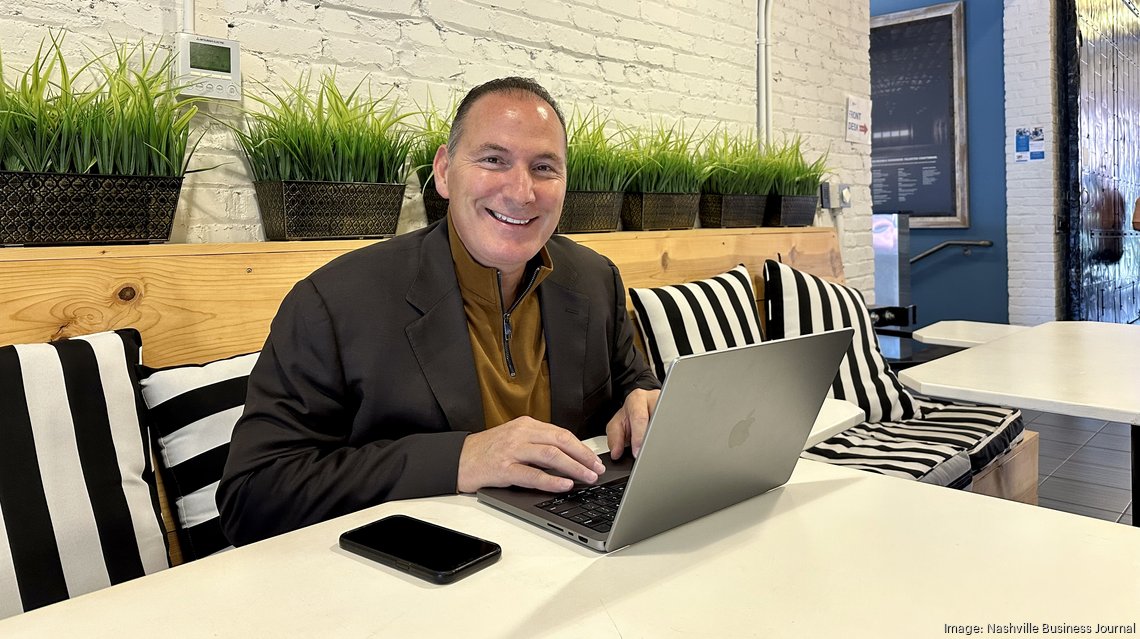by: Nikki Ross | Posted:
When looking for a homebase for his new substance addiction management company, founder Bill Farr looked across the country. But when he found the Nashville Entrepreneur Center in 2021, he knew he’d found the right place for his telehealth company Atadas to grow. He is currently the sole investor.
Now, Farr is working to make Atadas a widely used tool for providers to help their patients stay in addiction recovery. His telehealth platform utilizes artificial intelligence to keep track of medication-assisted treatment usage and predict which patients are in danger of relapsing. “I’m not a doctor. I can’t help people directly,” Farr said. “But if I can create infrastructure to help people help others, that’s what I want to do.”
The death rate for drug overdoses in Tennessee is 56.6 per 100,000, according to the National Center for Health Statistics.
From January 1 to June 30, Nashville had 332 fatal drug overdoses, 1,048 suspected drug overdose related emergency room visits and 2,883 suspected drug overdoses that needed emergency response, according to the Metro Public Health Department of Nashville and Davidson County. The number of people needing emergency services for an overdose peaked in 2020 and has remained steady since.
Atadas currently has five employees and supports hundreds of providers with over 15,000 patients in 10 states, including Tennessee. They also have a patent for their software.
The company supports three clinics in Nashville and an additional 15 across the state. Over 4,000 Tennessee residents are using the telehealth service.
How does Atadas work?
Atadas uses an app to connect substance use disorder patients with their providers virtually once they become an outpatient. The app provides educational messages, assesses patients on how they are feeling and reminds them to take their medication, which helps decrease withdrawal symptoms. The providers are then able to see the responses and monitor their patients with less in-person visits. “Patients have a 50% dropout rate when they start this treatment,” Farr said. “We’re trying to attack that … keep them in treatment and keep them engaged.”
The AI technology is used in two different ways. First, the software can recognize medications from a photo. The app will randomly require patients to take a photo of the medication they have left so providers can make sure they are taking it and make sure no pills are missing.The second use of AI is the software will take patient data from the provider and determine which of their patients are at the highest risk of relapsing.“We focused on medication management because there’s tools out there where you can get reminders to take your pills, but nothing intersects with treatment,” Farr said. “We wanted to combine remote monitoring of medication-based treatment with oversight of where they are in their treatment.” Atadas charges health care companies just $1 per month per patient. While the company is generating revenue, Farr said they are not yet profitable.
How was Atadas started and where is it going?
While Farr doesn’t have a history of addiction in his family, as the son of a Holocaust survivor, he said he and his siblings were raised to first, survive and second, help others.
Atadas was founded by Farr in 2020 in Salt Lake City, Utah, during the Covid-19 pandemic. The idea came in part from patterns in addiction and suicide he was seeing with the users of his other company TribalD — a platform for Native American tribal sovereignty, welfare, employment, training and more.
Developers from TribalD, founded in 2005, created the Atadas platform.
This is Farr’s fourth startup. He sold his first two, Xtend Inc. and TopVue Defense Inc., which is how he’s able to fund Atadas. So far he has put in $1.2 million. The company’s biggest customer is addiction recovery provider Spero Health Inc. and they have also partnered with The Next Door, a women’s substance use disorder treatment center in Nashville. Farr is currently in talks with the Rural Healthcare Association of Tennessee, ReVIDA Recovery and the Tennessee Recovery Courts.
Atadas is able to be “white labeled,” so health care providers can put their own name and branding on the software for use in their organization. When Farr and his company first moved to Nashville in 2021, they were in just three providers supporting 350 patients with under $10,000 in revenue. “This year our revenue is 30 times what it was before the Nashville Entrepreneur Center,” Farr said.
The Nashville Entreprenuer Center is a 13-year-old nonprofit that positions itself as the gateway to the city’s growing startup scene and a first-stop for people looking to create their own company. Farr said the biggest asset to working with the entrepreneur center is their connections in the community.
Farr is now working to grow Atadas so that his company can “add value for population health.” While he’s funded the company himself, he’s open to an investor if they are the right partner that have the right connections and portfolio help him grow the company.

